What are the causes of schizophrenia?
introduction
Schizophrenia is a very complex clinical picture, the exact causes of which have not yet been clarified. There are various attempts to explain the development of overt schizophrenia.
The most important model is the stress vulnerability coping model. It states that before the onset of schizophrenic symptoms, there is a susceptibility to schizophrenia. Schizophrenia can therefore be triggered in those affected by stress because the so-called coping mechanisms are not sufficient. Coping means the ability to deal with stressful situations and to process them.

What are the different causes of schizophrenia?
The exact causes are unknown; a multitude of individual factors are assumed which, together, can trigger schizophrenia. Causes that can contribute to the development of schizophrenia include:
- Genetic predisposition: the likelihood of developing schizophrenia is dramatically increased in children of schizophrenic parents. However, most new cases occur in patients who do not have a family history.
- Changes in the brain: Changes in the limbic system, which is responsible, among other things, for processing emotions, have been found in some people with schizophrenia.
- Biochemical changes: Our body depends on various substances in order to function properly. The brain in particular depends on a balance between the various messenger substances. In the case of schizophrenia, irregularities were found particularly with a messenger substance, dopamine.
Read more on the topic: Can schizophrenia be cured?
The genetic predisposition
From a statistical point of view, children of parents with schizophrenia are more likely to develop schizophrenia than the general population.
The likelihood of the general population is around 1% in children, with one parent diseased the likelihood is 5 to 10 times as high, and in children with 2 parents diseased the likelihood is around 40 to 50 times.
With twins, too, there is an increased risk for the other child if one of the two has schizophrenia.
However, no change in a particular gene has yet been proven that would explain the triggering of schizophrenia.So at the moment one can only speak of a statistically increased probability of first-degree relatives. This strongly suggests a genetic component, but around 20% of those suffering from schizophrenia have a family member who is also suffering from schizophrenia.
Find out more about the topic here: How can you test for schizophrenia?
What are the causes in the brain?
Various structural changes have been noted in the brain that may partially explain the symptoms in schizophrenia.
To determine this, a very large number of healthy people was compared with an equally large number of people suffering from schizophrenia, and the structural changes were statistically evaluated. Specific changes in certain areas of the brain were found in the sick.
Biochemically, the most common hypothesis is the dopamine hypothesis. Dopamine is a neurotransmitter that sends signals to neurons (nerve cells) and in this way controls many processes in the brain.
It used to be thought that a simple excess of the neurotransmitter dopamine led to schizophrenia. This assumption has now been changed to a much more complex variant. There are several "dopamine networks" in the brain. In schizophrenia there is an uneven distribution of dopamine and thus certain areas in the brain are oversupplied with dopamine and in other parts it is missing.
Other neurotransmitters involved are probably glutamate and serotonin, which influence information processing in the brain via various receptors.
Learn more about the neurotransmitter here: Dopamine.
Substance-related cause
Drugs as the cause
There is much debate about whether drugs can lead to overt schizophrenia, and if so, which ones.
The connection between cannabis use and the occurrence of schizophrenia is discussed most often. In the case of cannabis, it is believed that excessive abuse, especially in childhood and adolescence, can promote the onset of psychosis. It is believed that cannabis alone is not the trigger. Presumably, a genetic predisposition, the expression of which is exacerbated by the consumption of cannabis, leads to the more likely occurrence of schizophrenia.
Other drugs can lead to substance-induced psychosis, which can lead to hallucinations and delusions, among other things.
In contrast to real schizophrenia, however, the drug user can usually tell that the hallucinations are triggered by the substance. A patient with schizophrenia cannot see that the hallucinations and delusions are not real.
Read more about the topic here: What are the consequences of smoking weed?
Alcohol as the cause
Alcohol does not directly lead to schizophrenia. Like other drugs, however, alcohol can also lead to substance-induced psychosis, the symptoms of which can sometimes be similar to those of schizophrenia.
However, if someone with schizophrenia drinks alcohol, this can trigger another attack. Therefore, these patients are advised to refrain from alcohol and other drugs. Especially during treatment with neuroleptics, which relieve the symptoms of schizophrenia and are essential for the successful treatment of schizophrenia, alcohol must not be drunk. Neuroleptics have a strong depressant effect, alcohol would intensify this effect and make it unpredictable.
The social environment as the cause?
Schizophrenia is a multifactorial disease. Thus, causes from the social environment also play a role in the course of the disease.
In the past it was even assumed that people who did not have a stable social environment were more likely to develop schizophrenia. Although this has now been refuted, it is of decisive importance for the prognosis of the disease how well the patient is socially integrated.
The prognosis is best for married women who are more extroverted and have a strong social environment. These patients are most likely to be cured. However, the prognosis is worst for single men who tend to be introverted. These are more likely to have a chronic course.
Conversely, it can be said that good social inclusion cannot prevent schizophrenia, but it does significantly improve the course of the disease.
What are the causes in childhood?
In children, schizophrenia is a very rare condition, especially before puberty. However, it is now believed that schizophrenia can be triggered, among other things, by defective brain development during pregnancy and in early childhood.
The disease usually appears for the first time in young adulthood, even if the first signs can be detected beforehand.
It was previously thought that children who are not shown love and affection are more prone to schizophrenia. However, this opinion has now been abandoned. It is now assumed that the causes of schizophrenia also have a genetic cause and can be inherited.
More information on the topic: Schizophrenia in children you'll find here.
What triggers are there?
Often times, when schizophrenia first appears, the exact cause cannot be determined. Some people find it difficult to cope with stress or unexpected events, and so there may be times that mild emotional distress leads to schizophrenic psychosis.
Caffeine, alcohol and tobacco do not lead to an initial manifestation of schizophrenia, but an attack can be triggered if schizophrenia is already present.
The increased risk of developing schizophrenia is often described if cannabis is consumed excessively in adolescence. People who have an unstable social and family environment do not develop schizophrenia more often, but a stable environment promotes a more positive course of the disease and there are fewer repeated episodes of schizophrenia.
Read more about the topic here: Inheritance of schizophrenia.












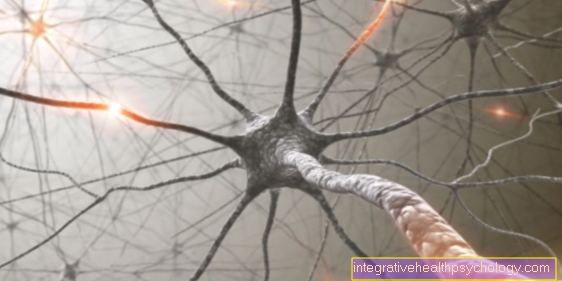

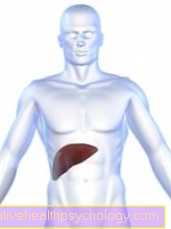




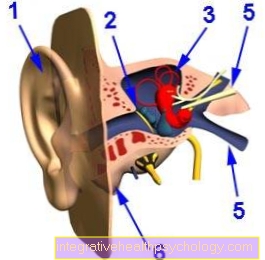


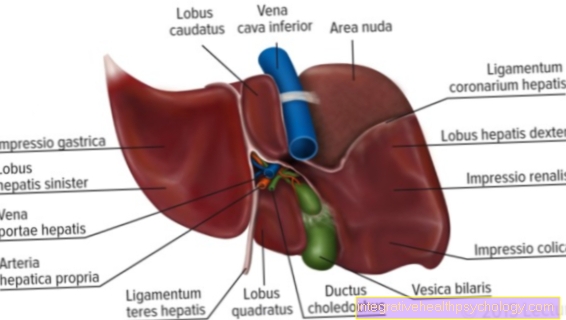

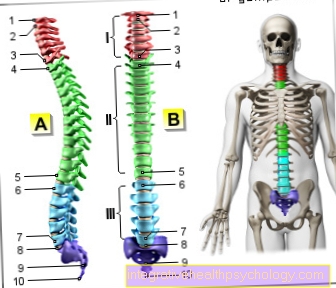
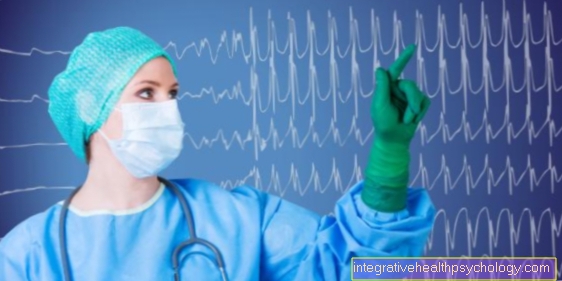



.jpg)